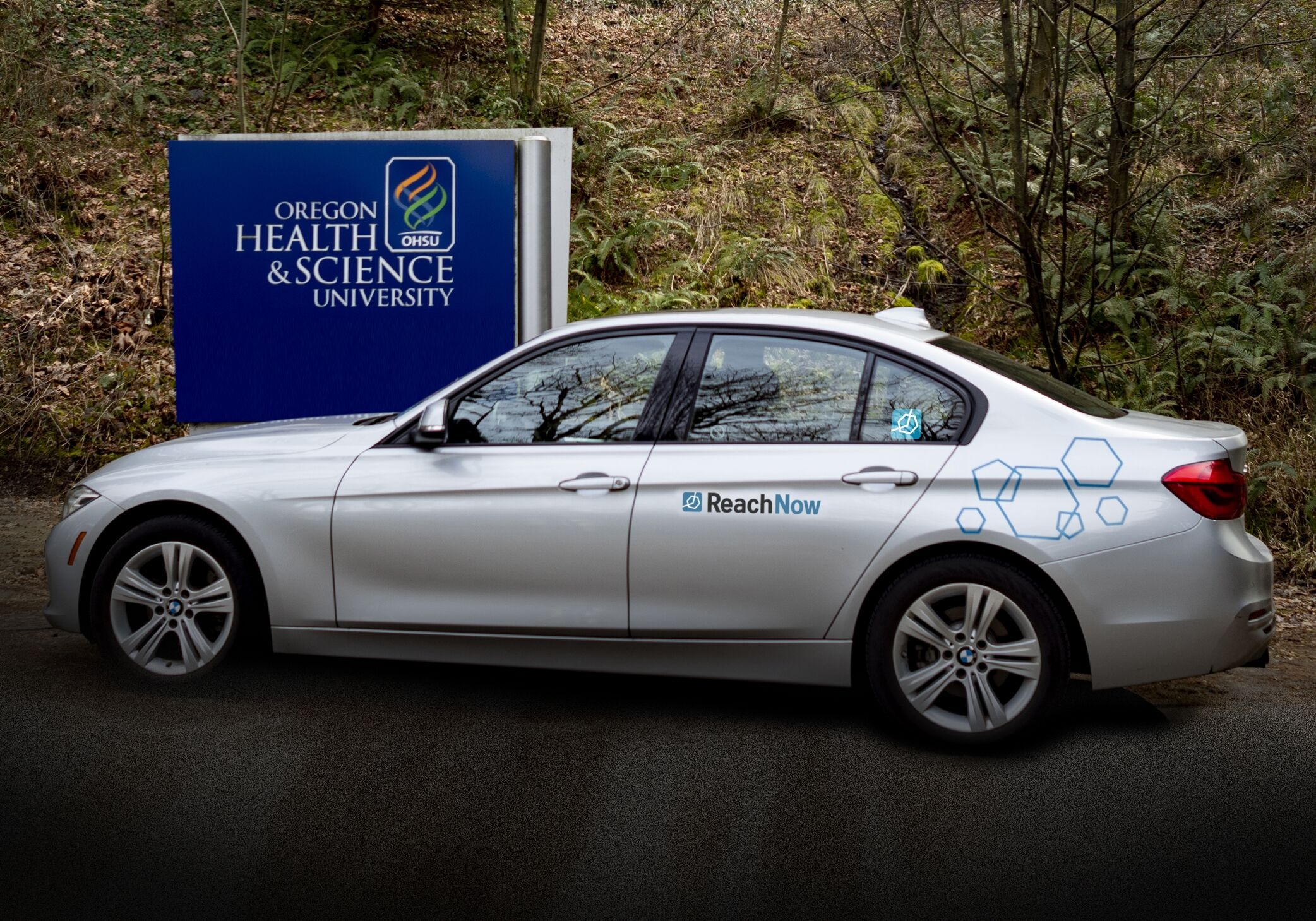A fleet of shared vehicles has arrived at Oregon Health and Science University, a move that could inspire others to follow its example.
The Washington-based car-sharing service ReachNow announced today it is partnering with Oregon Health and Science University, bringing a fleet of six shared vehicles to the Portland campus.
With more than 20,000 visitors every day, the hospital, as well as the Portland metro area at large, faces congestion issues. According to the official press release, the move is aimed at making transportation smoother between campuses.
ReachNow has partnered with Intel and Tektronix, making this the company’s third collaboration in Portland.
Research on whether car-sharing services reduce car use overall is mixed. A 2016 report by UC Berkeley’s Transportation Sustainability Research Center found that people who used a shared-transportation system were more likely to shed their cars.
Five percent of respondents said they’d sold their car as a result of the program, and between 7% and 10 % of respondents said they had avoided buying a car as a result.
The study found every shared vehicle eliminated between seven and 11 personal vehicles from the road. The study also found these services correlate to a net reduction in greenhouse gas emissions.
Other studies show car-sharing services like Lyft and Uber increase congestion and dissuade people from using public transportation.
A 2018 study by Schaller Consulting found users of car-sharing services in urban, dense cities would have taken public transportation, walked, biked or not made the trip, if ride services weren’t available.
Congestion in Portland has increased 13% since 2015. If car sharing programs are shown to be effective traffic reducers, such traffic burdens could be alleviated.
Oregon Health and Science University announced in a press release the move would help to “support OHSU’s Transportation Demand Management goals.”
With personal car ownership costing the average consumer nearly $8,500 a year, businesses which add car-sharing services could alleviate financial burdens on their employees.
While preliminary findings have shown the positive effects of car-sharing programs, more researchis needed to estimate the impact overall.
If ReachNow’s model continues to pick up steam, more data could quickly become available.
To subscribe to Oregon Business, click here.







